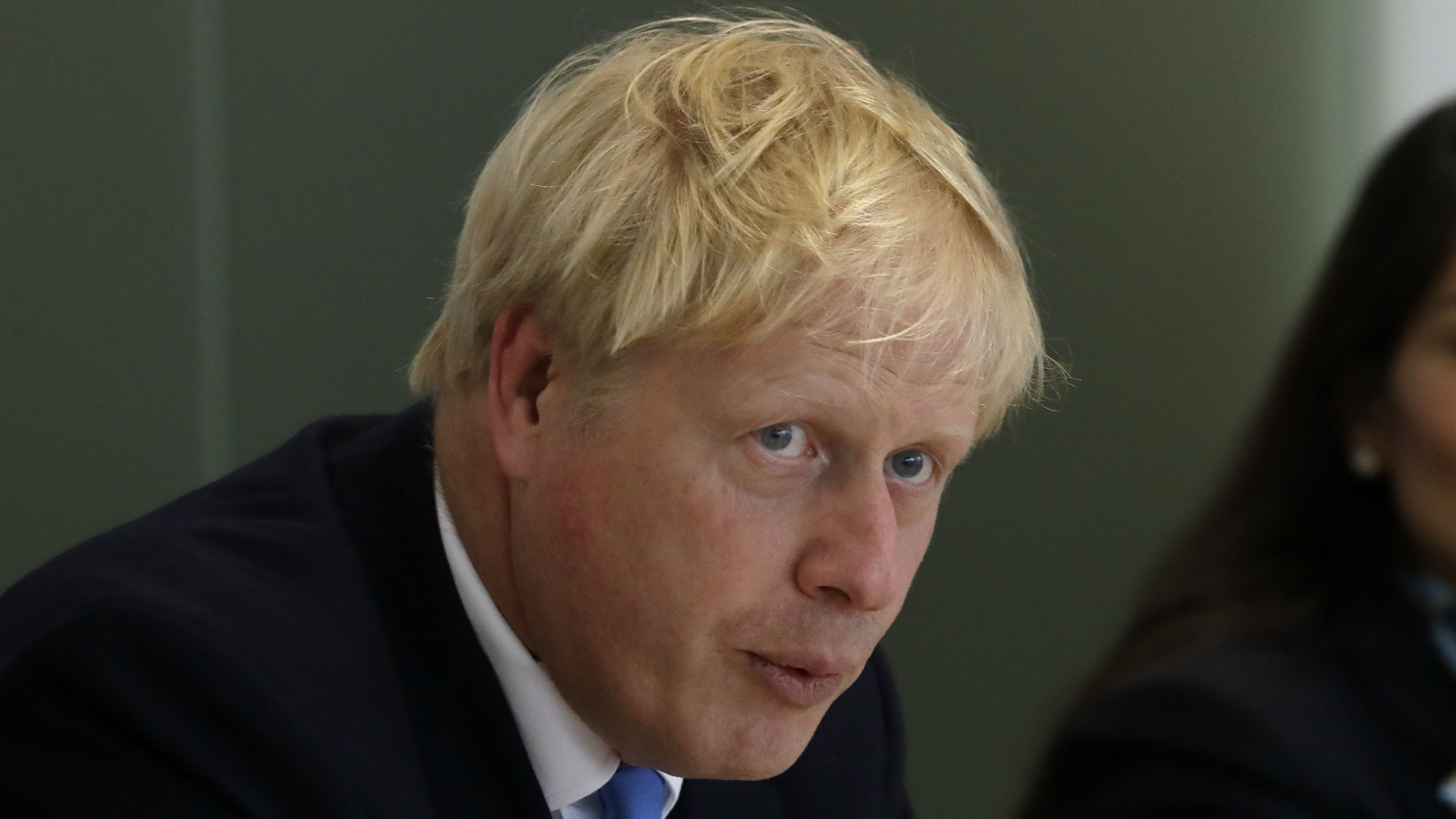Johnson’s Brexit deal ‘would cost UK economy £70bn’
National Institute of Economic and Social Research says growth will be 3.5% lower

A free daily email with the biggest news stories of the day – and the best features from TheWeek.com
You are now subscribed
Your newsletter sign-up was successful
A leading economic think tank says Boris Johnson’s Brexit deal will cost the UK economy as much as £70bn over the next decade compared with remaining in the European Union.
The National Institute of Economic and Social Research’s study, one of the first assessments of how the economy will fare under Boris’ deal, found that growth would be 3.5% lower in 10 years’ time under the prime minister’s proposals.
The independent forecaster rejected government claims the withdrawal agreement would spark economic growth, insisting that Johnson’s plan would not conjure a “deal dividend” for the economy.
The Week
Escape your echo chamber. Get the facts behind the news, plus analysis from multiple perspectives.

Sign up for The Week's Free Newsletters
From our morning news briefing to a weekly Good News Newsletter, get the best of The Week delivered directly to your inbox.
From our morning news briefing to a weekly Good News Newsletter, get the best of The Week delivered directly to your inbox.
The Treasury has rejected the prediction, saying: “We are aiming to negotiate a comprehensive free trade agreement with the European Union, which is more ambitious than the standard free trade deal that NIESR has based its findings on.”
However, the BBC says that the study suggests that Johnson’s deal would inflict an even bigger hit on the economy than the one proposed by Theresa May.
“The new deal creates more distance from the European Union economy, with more regulatory barriers to trade. Unlike May’s deal, there could be checks on the origin of parts in the car industry, for example,” writes Faisal Islam, the BBC’s economic editor.
The Guardian points out that the intervention by Britain’s oldest independent economics research group comes after the chancellor, Sajid Javid, “shelved plans to hold an early November budget, effectively removing an opportunity for the publication of official growth forecasts ahead of an election”.
A free daily email with the biggest news stories of the day – and the best features from TheWeek.com
Whatever the future holds, NIESR warns that Brexit has already done significant damage. It said that the atmosphere of uncertainty and the threat of a no-deal Brexit have stunted economic growth since the 2016 EU referendum, resulting in an economy 2.5% smaller than it would have otherwise been.
Jagjit Chadha, the director of NIESR, said: “The UK economy will continue to suffer what we’re terming a slow puncture. Not a pop, not a bang. But a slow puncture, as investment is deferred in the face of uncertainty.”
–––––––––––––––––––––––––––––––For a round-up of the most important stories from around the world - and a concise, refreshing and balanced take on the week’s news agenda - try The Week magazine. Get your first six issues for £6–––––––––––––––––––––––––––––––
-
 Political cartoons for February 21
Political cartoons for February 21Cartoons Saturday’s political cartoons include consequences, secrets, and more
-
 Crisis in Cuba: a ‘golden opportunity’ for Washington?
Crisis in Cuba: a ‘golden opportunity’ for Washington?Talking Point The Trump administration is applying the pressure, and with Latin America swinging to the right, Havana is becoming more ‘politically isolated’
-
 5 thoroughly redacted cartoons about Pam Bondi protecting predators
5 thoroughly redacted cartoons about Pam Bondi protecting predatorsCartoons Artists take on the real victim, types of protection, and more
-
 Can the UK avoid the Trump tariff bombshell?
Can the UK avoid the Trump tariff bombshell?Today's Big Question President says UK is 'way out of line' but it may still escape worst of US trade levies
-
 Five years on, can Labour's reset fix Brexit?
Five years on, can Labour's reset fix Brexit?Today's Big Question Keir Starmer's revised deal could end up a 'messy' compromise that 'fails to satisfy anyone'
-
 Why au pairs might become a thing of the past
Why au pairs might become a thing of the pastUnder The Radar Brexit and wage ruling are threatening the 'mutually beneficial arrangement'
-
 Brexit: where we are four years on
Brexit: where we are four years onThe Explainer Questions around immigration, trade and Northern Ireland remain as 'divisive as ever'
-
 Is it time for Britons to accept they are poorer?
Is it time for Britons to accept they are poorer?Today's Big Question Remark from Bank of England’s Huw Pill condemned as ‘tin-eared’
-
 Is Brexit to blame for the current financial crisis?
Is Brexit to blame for the current financial crisis?Talking Point Some economists say leaving the EU is behind Britain’s worsening finances but others question the data
-
 Labour shortages: the ‘most urgent problem’ facing the UK economy right now
Labour shortages: the ‘most urgent problem’ facing the UK economy right nowSpeed Read Britain is currently in the grip of an ‘employment crisis’
-
 Will the energy war hurt Europe more than Russia?
Will the energy war hurt Europe more than Russia?Speed Read European Commission proposes a total ban on Russian oil